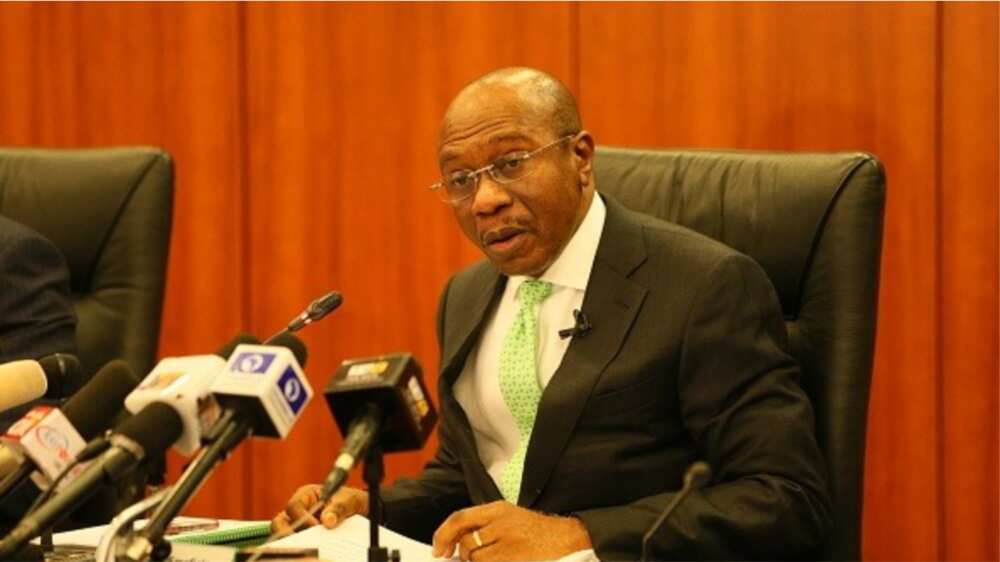CBN Seeks Court Order to Freeze Accounts of 157 Companies Involved in Diversion of Funds for Prepaid Meters
- The Central Bank of Nigeria is making moves to freeze accounts of 157 companies for the diversion of funds meant for the mass metering scheme
- The CBN asked a court in Lokoja in Kogi state for a directive to freeze the accounts of the companies for 180 days pending the outcome of its investigation
- According to the apex bank, the companies diverted the funds through entities and individuals connected to some distribution companies in Nigeria
PAY ATTENTION: Click “See First” under the “Following” tab to see Legit.ng News on your Facebook News Feed!
Nigeria’s Central Bank has asked a court for a directive to freeze accounts of 157 companies in the Meter Asset Providers (MAPs) scheme for allegedly diverting funds meant for the procurement of prepaid meters.
TheCable report cited a law suit filed at the federal high court in Lokoja in Kogi State on July 20, in which the CBN asked commercial banks to put a no debit order on the accounts of 10 companies which got power sector intervention funds under the National Mass Metering Programme (NMMP) for 180 days as it investigates the firms.

Read also
World’s largest cryptocurrency exchange, Binance adds 12 banks in Nigeria on its Peer-to-Peer platform

Source: Getty Images
CBN names alleged culprits
The CBN identified the companies as Mojec Meter Asset Management Company Limited, Integrated Power Nigeria Limited, Holley Metering Limited, Prodigy Global Services Limited and Turbo Energy Limited.
PAY ATTENTION: Follow us on Instagram - get the most important news directly in your favourite app!
The apex bank also mentioned G Unit Engineering Limited, Koby Global Engineering Services Limited, FLT Energy Systems Limited, Smart Meters Asset Provider Company Limited and Cresthill Engineering Limited.
The bank said it reviewed the activities of the 12 companies and discovered they have diverted funds under the National Mass Metering Programme (NMMP).
The CBN stated that the review wanted to know the flow of the funds which was made available to the MAPs which covers the period of January 1, 2020, to March 15, 2022.
Fund diversion undermines economic growth
According to the CBN, initial findings reveal that that the defaulting companies diverted a major part of the funds for other purposes via companies and individuals which are connected to the electricity distribution companies and the now defunct PHCN.
CBN accused the banks of causing instability in the power sector via maintaining the unpopular estimated billing regime which the Nigerian government is trying to eradicate.
The diversion of the funds, the CBN stated, has jeopardised its intervention efforts in the power sector and the various sectors of Nigeria’s economy.
In 2018, the NERC, the electricity regulatory agency introduced the MAP scheme to new investors in the power sector to hasten the rollout of meters through third-party investors. The distribution companies were asked to engage the services of MAPs within 120 days to achieve a three-year metering target by NERC.
The metering scheme has gulped N37 billion which the federal government provided as a grant to MAPs for the supply of the meters.
The scheme was launched in 2020 to bridge the metering gap in the country.
Nigerians report improved electricity supply but experts say it’s flash in a pan
Legit.ng reported that as the Nigerian government took over some distressed Distribution Companies penultimate week, electricity consumers in Nigeria have reported improved power supply in their areas.
Some said the takeover of the distressed DisCos sent a strong signal to many players in the electricity sector that it is no longer business as usual.
It is reported that power generation has improved over the last seven days after the national grid collapsed a record eight times in two months.
Source: Legit.ng


